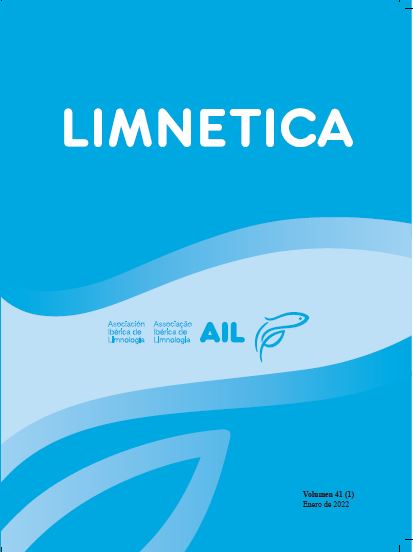The influence of hydrology and sediment grain-size on the spatial distribution of macroinvertebrate communities in two submerged dunes from the Danube Delta (Romania)
Resumen
The present study focused on the ecological preferences of benthic macroinvertebrates regarding water flow and sediment characteristics in two submerged dunes from Danube Delta (Romania). Three hydraulic microhabitats, the stoss, trough and crest areas were sampled, along with measurements of water hydraulics, hydrology, sediment grain-size, and organic content. The results showed that the slope angles between stoss-crest and crest-trough areas are crucial in modulating local flows, sediment structure, organic content, macroinvertebrate communities, and taxonomic richness and density. As such, the stoss microhabitats are considered zones with the highest turbulence, hence driving low taxonomic richness and density compared to crest and trough microhabitats. When local environmental conditions in trough microhabitats allow the accretion of fine and organically enriched sediments, the development of maximum density for certain macroinvertebrates groups is reached. However, the benthic assemblages did not show clear preferences for certain microhabitats, suggesting ubiquitous ecologic traits, crucial for the successful colonisation of dynamic habitats, such as the submerged dunes in large rivers. The results of this study offer a better understanding on the abiotic factors driving the spatial preferences, density, and diversity of benthic macroinvertebrates in these understudied hydrogeomorphological units from large rivers.
Descargas
Publicado
Número
Sección
Licencia
Los autores que publican en esta revista están de acuerdo con los siguientes términos:
- Limnetica está bajo una licencia de Creative Commons Atribución-NoComercial 4.0 Internacional.
b. Los autores pueden establecer por separado acuerdos adicionales para la distribución no exclusiva de la versión de la obra publicada en la revista (por ejemplo, situarlo en un repositorio institucional o publicarlo en un libro), con un reconocimiento de su publicación inicial en esta revista.
c. Se permite y se anima a los autores a difundir sus trabajos electrónicamente (por ejemplo, en repositorios institucionales o en su propio sitio web) antes y durante el proceso de envío, ya que puede dar lugar a intercambios productivos, así como a una citación más temprana y mayor de los trabajos publicados (Véase The Effect of Open Access) (en inglés).


